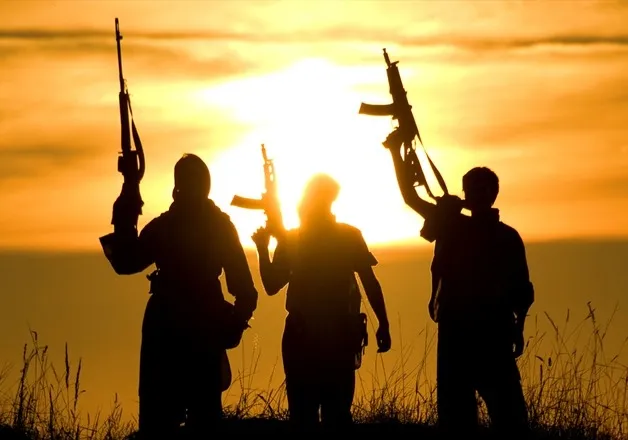Is ISIS's Presence in Pakistan Endangering Stability in Central and South Asia?

Synopsis
Key Takeaways
- ISIS-K's presence in Pakistan threatens regional security.
- Burhan 'Zaid's assassination highlights the issue.
- Pakistan is seen as a hub for Daesh activities.
- International accountability is crucial to prevent further instability.
- Collaboration between Pakistan's security forces and Daesh is concerning.
Kabul, Nov 21 (NationPress) The recent assassination of ISIS-Khorasan (ISIS-K) commander Burhan 'Zaid' in Pakistan provides undeniable proof of Daesh's presence within the nation, posing a serious threat to the security of the entire region and jeopardizing the stability of Central and South Asia.
Reports from Afghan media indicate that Burhan was killed by unidentified armed individuals in the Kasur district of Punjab Province. He was instrumental in the group’s organizational framework, overseeing support, coordination, and funding for the 'Daesh Khawarij' network, also referred to as ISIS or the Islamic State, operating out of Pakistan. His elimination underscores the extensive use of Pakistani territory for the group’s clandestine operations.
According to the Afghan media outlet Al-Mirsaad, while Daesh Khawarij is under significant pressure from ongoing military actions in Afghanistan, Pakistan is facilitating an environment that enables the group to reorganize and regain power. Increasingly, international organizations, the United Nations, regional governments, and analysts acknowledge that Pakistan has evolved into a hub for Daesh's activities, safe houses, and strategic planning.
The report further emphasizes that the global community must insist on the complete dismantling of these networks within Pakistan and hold the country accountable for its contradictory and destructive policies. Inaction risks plunging the region and beyond into an irreversible cycle of violence.
Drawing from various international intelligence assessments, regional sources, and corroborated documentation, the Al-Mirsaad report points out that the terrorist group has sought refuge in Pakistan, transforming parts of the country into a safe haven and an operational base for orchestrating its activities following extensive Taliban-led operations.
Within Pakistan, Daesh members are not only funded, trained, and supplied with propaganda resources, but their missions are also meticulously planned and coordinated before being dispatched to neighboring countries, aiming to instigate violence and instability. This scenario poses a significant threat to the security of surrounding nations and undermines the stability of the broader region, especially Central and South Asia.
The report concludes that the collaboration of Pakistan's security agencies with Daesh Khawarij, whether overt or covert, reflects a policy steeped in duplicity. Unless the international community takes this matter earnestly and holds Pakistan accountable, the ensuing instability is likely to have repercussions for all nations in the region.









